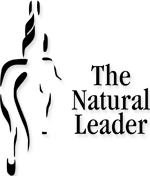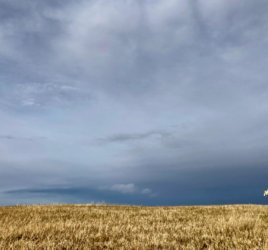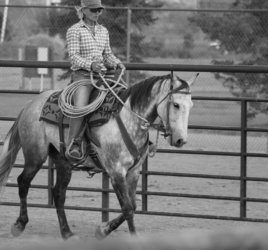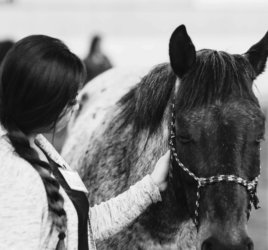Many years and successes later, Lowy’s current role is President and CEO of Sproule. It is the weekend trips to his ranch in southern Alberta that offer a respite from a busy international travel schedule. Where once again the rhythm of animals influence the pace, this time less regimented. Riding the hills have become a place to clear his mind and bring focus, the horses Lowy finds, help him “see things from a whole different perspective”.
It’s been five years since Lowy reconnected with animals in that short time Lowy has learned a lot about horses, himself and how he shows up to others. It was an honor and a delight to sit down with Lowy & Kate through a fabulous dinner at Bocci Restaurant on 4th street in Calgary on one of our first cold nights of November.


I think people are the same way. I am in a very challenging role right now so it’s about taking the time to understand people, get them to understand what is needed and not trying to force them. So I am using that idea as I work with different people to see if they will come along.
LG – I come from a world of engineering projects. Working with people is not something engineers are trained to do. It is something you learn as you go and some never do learn it. I’ve always been intrigued by how to get people to do their best so perhaps that is an innate characteristic.
My job is around rebuilding a company, but it’s all about the people. So really it’s people reengineering is what I am doing. Trying to understand how to get people to change from very engrained ways of doing things to something different. Helping them understand why they need to, why they have to change.
The perspective that horses have brought has allowed me to pursue different ways of working with people as well. Trying to figure out how to get them to respond.
Kate and I recently both got new horses other than maybe a ride or two along the road or in a flat field, they’d never been ridden outside the arena. First time out in the hills the horses had to keep stopping just to look around. The arena had been their routine, their comfort zone, we changed the environment and they adapted brilliantly. We have a small outdoor arena but the horses seem to respond better to everything out in the hills.
So the day we had the problem of getting him into the trailer. We’d been in the arena loping circles, getting him to position his head and working pretty hard. After a day back in the arena he was tired, he was dull. We had to get help so he would see the trailer home was an ok place to be. That’s an interesting parallel the idea of pushing the envelope – changing up the environment and seeing how brilliantly the horses responded. Put him back into the routine and he just didn’t want to do it anymore.
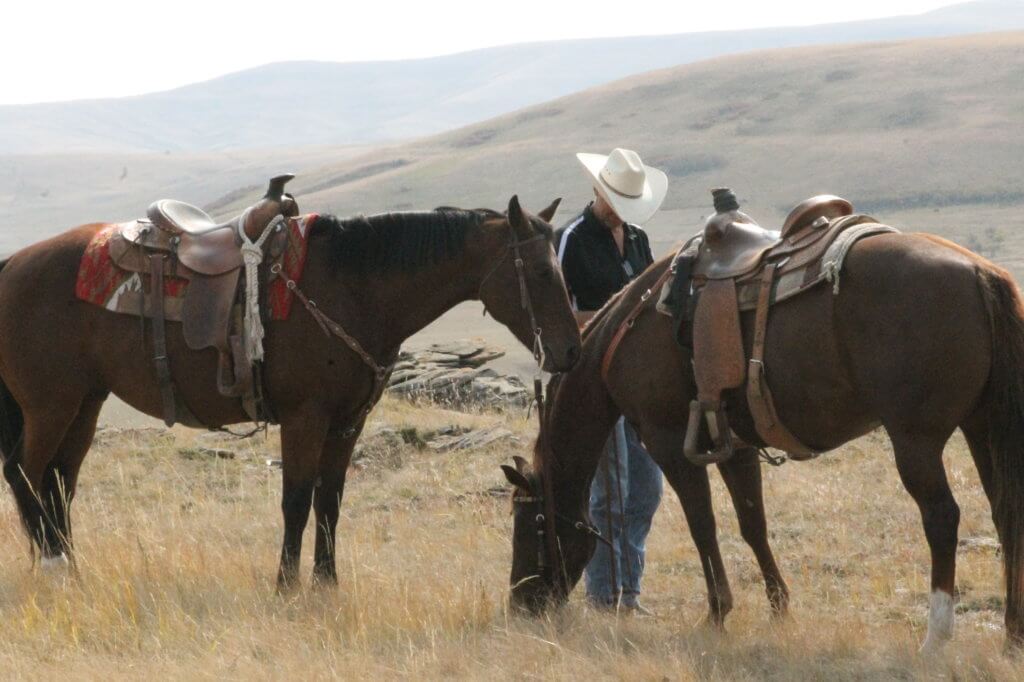 How do the horses help you recharge?
How do the horses help you recharge?So from that point of view – horses have impacted me on the ability to put my mind in a different place and think through my problems from a different point of view. Your mind can wander.
From the people point of view. They need to try, show some aptitude and interest for the work or the changes we need make. Then they will work out.
In my job, I make conscious decisions everyday about, how much time can I spend helping people come along. This is different than when I am working with my horses as I have learned that I must have the patience to wait for my horse to decide that he will do what I ask him to.
I believe I have become more aware of all the options. Empathy is one, though some people might not think I show it much. I would suggest they might not get what is expected of them, but maybe I need to consider how I am presenting myself and look for another lateral perspective in order to be successful with the “ask”.
Nancy Lowery has been writing about her Leadership Learning through Horsemanship Experiences for over ten years. This series began as “One Foot in the Arena” with a view to explore what other leaders in Calgary have learned about leadership, through their relationships with horses.
The Natural Leader offers Leadership through Horsemanship to the corporate sector in Calgary and Edmonton, Alberta. To explore how a day with horses can complement your Leadership Training programs Nancy would love to hear from you.
